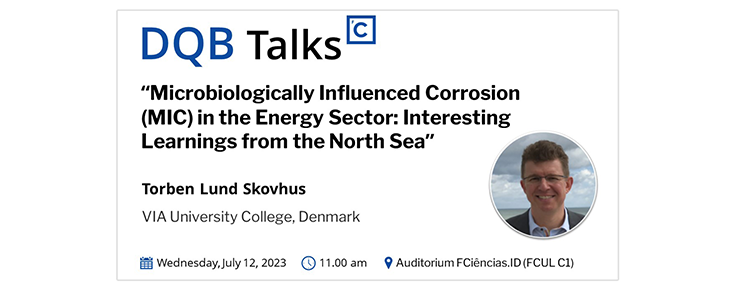
Por Torben Lund Skovhus (VIA University College, Denmark).
Host: Elisabete Silva.
This study will cover the latest failure analysis theory on how to integrate MIC in failure investigations in the offshore energy industry in the North Sea. Three examples are given from the Danish and UK sector of the North Sea and the learnings are discussed. Case 1 describes the rupture of a water injection pipeline in the Danish Sector of the North Sea and what the operator learned from the incident. Case 2 describes an oil transmission system in the UK sector of the North Sea suffering from MIC. Case 3 describes a topside water injection system that suffered from MIC and how the investigation was carried out; from the spool samples left the offshore platform in the Danish sector of the North Sea following it to the shore base and onwards to the specialist materials and microbiology laboratories. Emphasis will be on practical sampling preservation, shipment and laboratory processing and lessons learned from the field cases.
The study highlights the importance of stronger emphasis on risk assessment models including MIC, industry standards and training of personnel, when it comes to the understanding, mitigation and management of MIC and biofouling in the energy industry.
Finally, the presentation will give the latest news on the current and future activities in the newly formed COST Action CA20130 (https://www.cost.eu/actions/CA20130/) – “European MIC Network: New paths for science, sustainability and standards”.

